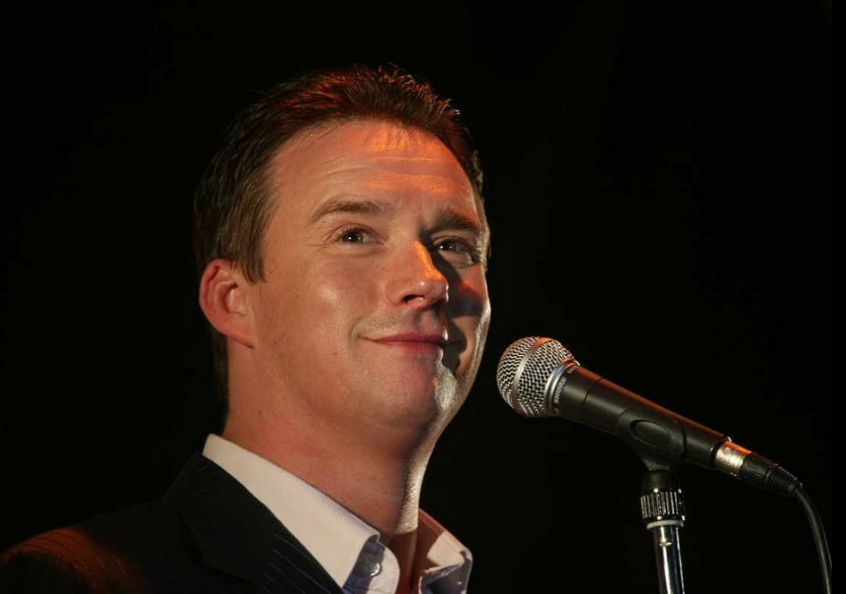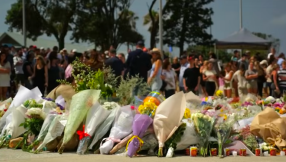There are very few areas of being a parent that I can say with any confidence that I outperform my wife. She is a brilliant mum and our son is thriving because of it. Where I come into my own, however, is DUPLO.
In case you don't know, DUPLO is the pre-school version of LEGO. The bricks are a bit bigger but the idea is the same. I came late to LEGO – as a kid I couldn't really understand the appeal. As an adult, I've had to build shelves in my house just to accommodate my growing collection.

As soon as I could, I started buying my son DUPLO bricks, and he has come to love it as much as I do. We can lose hours to building stuff with DUPLO, and he's recently discovered that a gap in any other set of toys can be filled with a carefully constructed DUPLO alternative.
If the PJ Masks need a garage to repair their vehicles – 'Daddy, get the DUPLO.' If the Avengers need a lookout to track villains – 'Daddy, get the DUPLO.'
We've made shields for knights' costumes, spaceships for aliens and even a sleigh for Santa.
I'd love to tell you my parental superiority comes from the fact that I'm a naturally gifted DUPLO builder, but it's actually more simple than that. I'm just a bit more compliant than his mum. When they try to build together it becomes a battle of bricks and wills. One of them will place something in position, the other will then attempt to move it unnoticed. Then a few moments later, having been caught, the piece will magically be put back by the now affronted party. I recognise my place as Master Builder's Assistant and see my job as the facilitator of his vision, albeit with a more mature set of fine motor skills and better dexterity.
Last week, he came to me with an idea. 'Daddy, the Paw Patroller needs a garage attached to a tunnel.'
Now if you don't know, Paw Patrol is a cartoon essentially about a small seaside town with an incompetent mayor who has outsourced all their emergency services to a teenage boy and his six highly trained dogs. The Paw Patroller is an HGV lorry that can transport the dogs and their emergency vehicles. Somewhat sinisterly, the boy has also created a robotic dog to drive the lorry, as if warning the pups that they are entirely replaceable.
I digress. My son needed a garage and a tunnel for his Paw Patroller. And so he gave the command – 'Daddy, get the DUPLO.' He began to describe what he wanted. A full garage for the patroller with three surrounding walls and a roof covering. This would be connected to a tunnel that it could travel through before entering the real world at full speed.
I began to think about how we could make this work. He was already adding to the project. Moving turntables, windows, emergency exits, somewhere for the robot dog to sleep (I didn't have the capacity to explain that robots don't sleep). It was growing and growing, and I was becomingly quickly aware of a problem - not enough bricks.
This hadn't come up before; he's got a lot of bricks, collected over the past four years. Any time we've needed to build, we've always had enough. But this latest scheme would need more bricks than we had. In fact, he was still talking, still envisioning more and more layers to this project – meaning that even if I'd had the desire or resource to go and buy all the bricks in our local Smyths Toyshop, I don't think we'd have had enough.
I interrupted him midway through describing where the gym facility would be and calmly explained that I thought we might need to have another think. He looked confused, I'd never had to say this before. He told me what he wanted, he explained what he was imagining and then I would build it for him. This accountability was something completely new.
I explained that we simply didn't have enough bricks to do what he wanted. I assured him that his idea was a good one, but it wasn't going to be possible. I promised him we would still build something amazing, in fact, it might even be better than what he'd first thought because now we'd have to make every brick count. And best of all, we'd be figuring out how to do it together.
The lip went first, then the tears came, and then he lay on the floor as his disappointment turned to despair right before my eyes.
A story in the news caught my eye this week. It was about a church in Nottinghamshire that has been forced into liquidation. The International Church in Mansfield Woodhouse had planned a huge arena tour of a musical entitled Heaven on Earth, based on the story of Adam and Eve. It was to be a visual spectacular that would play across the whole UK including Wembley Arena. Russell Watson was booked to play the voice of God and the costume budget alone was reported to be over £300,000. Church leaders had set up a production company to put on the show and planned a six-month tour. One former church member told the BBC, 'They thought it would be a God-given tool to win nations, to change the world.' Instead, the whole thing went bust weeks before its first scheduled performance, in debt to the tune of £2.6 million.

Perhaps saddest of all is that it has been reported that around £500,000 of that cash came from members of the congregation. The BBC reports that Audrey Beardal, 80, claimed she was asked to take out £3,000 of savings and was driven to a bank. There are reports some had remortgaged homes. Others said they were told that giving to fund the show was 'giving to God'. It's worth noting that one of the musical's directors has said they're sorry for everyone who had lost money – including themselves. They went on to insist that any donation was made on a 'free will basis' and 'there was no pressure on anybody'.
It's hard to know where to begin with a story like this one. It doesn't seem like anyone made any money out of it, so it doesn't fit the mould of pastors funding private jets or paying for 'retreat' houses in the Cayman Islands with the contents of the offering plate. This doesn't have all the markings of a get rich quick scam or chance to line a greedy leader's pockets. I wasn't there, so I can't tell you exactly what happened in that church in Nottinghamshire, but by all accounts, they really were going to put on a musical spectacular. They really had booked arenas, actors, musicians, technicians. They really did think they could change the world. And, if accounts are to be believed, they really did ask their congregation to fund their vision.
Vision is a funny thing isn't it? Whether it's a four-year-old hoping to build a garage for his dog-lorry or a bunch of pastors trying to change the world with some singing and a light show, it's easy to get caught up in it all.
I can't help but imagine how differently this story might have ended if there had been some way to ask more questions, to bring some accountability to those in authority, to find some others who had done this type of thing before. I can't help but wonder if it might have been different if someone had asked, 'Might it be a better idea for us to learn how to do this before we leap into an arena tour?' Or if someone had suggested, like a dad who wants to help facilitate a vision but knows we don't have the bricks, that maybe they needed to keep an eye on the finances.
Of course, those questions or concerns might have been written off as lacking faith, or dissenting voices. They might have been ushered out the side door or silenced with some heavy-handed preaching on respect and authority. But maybe not. Maybe the questions would have been heard, the warnings heeded, the liquidation avoided. And if not, at the very least, the unwillingness to make space for even the slightest inch of accountability might have served as a warning for others.
But it's so easy to get caught up in it all. Vision has always had a special place in the church, for both the good and the not so good. If there's a single verse of the Bible guaranteed to get even the most progressive pastor dusting off their King James Version it's Proverbs 29:18, 'Where there is no vision, the people perish.' Usually quoted just before or after launching their latest 'perish-proof' vision. And while there is no doubt that many congregations flourish under this kind of visionary leadership and many others flounder without it, there is surely a need to ensure that 'vision' doesn't become a catch-all term for any idea that any one or any group has just had. That every idea, however untested, becomes sacred by the attachment of the 'vision' label.
And while I know that might get messy, and it might take a little longer; while I understand it might lead to a few tears and maybe even the odd tantrum; I also wonder if when the vision is robust enough to take a few questions, big enough to be moulded by other voices, and patient enough to take the time to listen, it might just be building on a better foundation, and might just find it doesn't run out of bricks.
Because while it's true that where there is no vision, the people perish, for me, the lesson for all of us from Mansfield Woodhouse is that where there is vision without accountability, the people end up bankrupt in more ways than one.
Matt White is a Northern Irish TV producer living in Essex and working in London. Follow him on Twitter @mattgwhite













